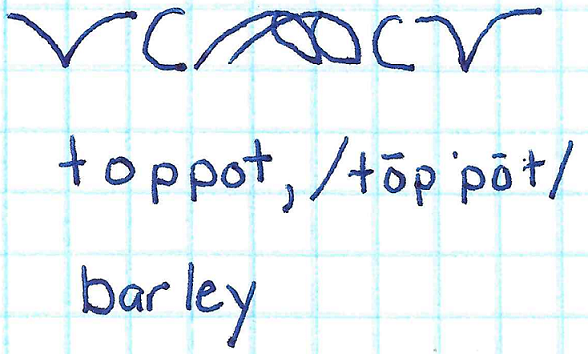Today we get a phrase!
“This barley grows here.”
toppotzhu
barley, toppot
-zhu, -this
here, ikiek
toor, to grow
in- currently, presently
-anan conjugating a verb to a plural useful subject
toppotzhu ikiek intooranan
This means somewhere between “that was then, this is now” and “when life gives you lemons, make lemonade,” with maybe a bit of “que sera, sera.” The Calenyena, who began life as a herding culture, use this phrase to answer changes in environment that they cannot alter.
It colors their attitude towards food and crops: this is the food we can grow here. It also informs the way they look at gods; these are the gods we have now.
It’s a philosophy, and, of course, not everyone always adheres to it. Sometimes it’s just the phrase a parent uses to answer complaints by a child. “You can’t always have what you want; this barley grows here.”
It’s useful to note that most Calenyena use barley, toppot, to loosely describe all cereal grains.
This entry was originally posted at http://aldersprig.dreamwidth.org/1027753.html. You can comment here or there.
